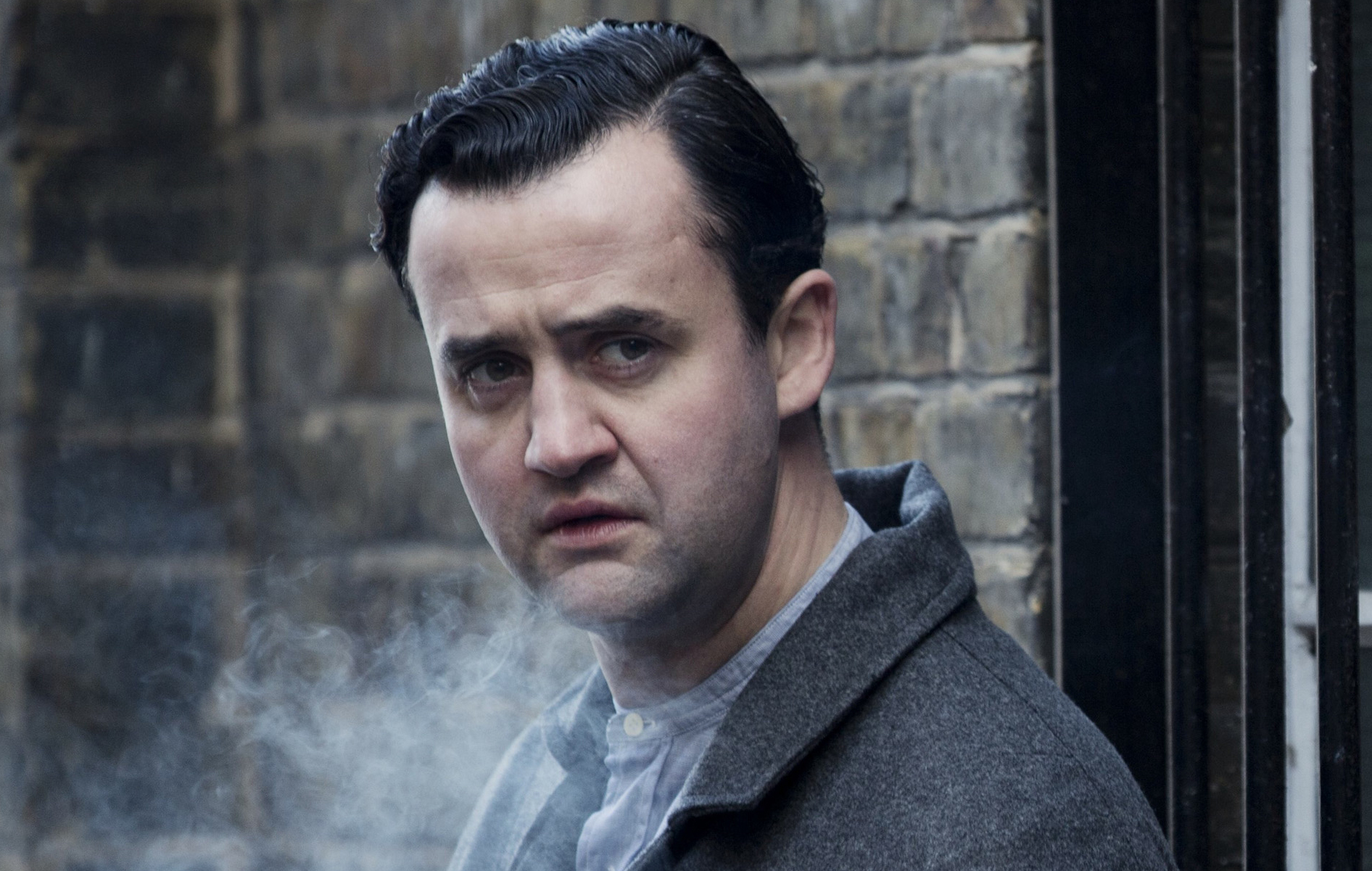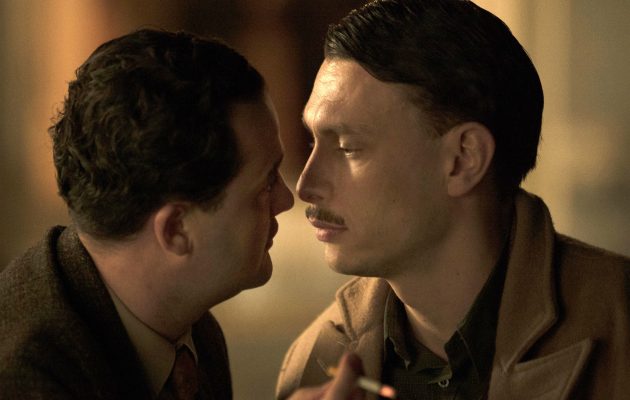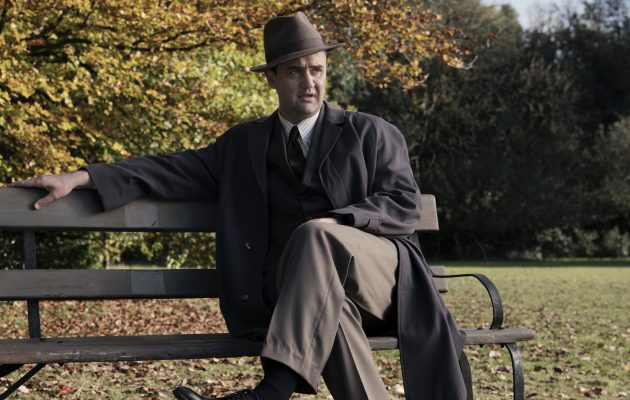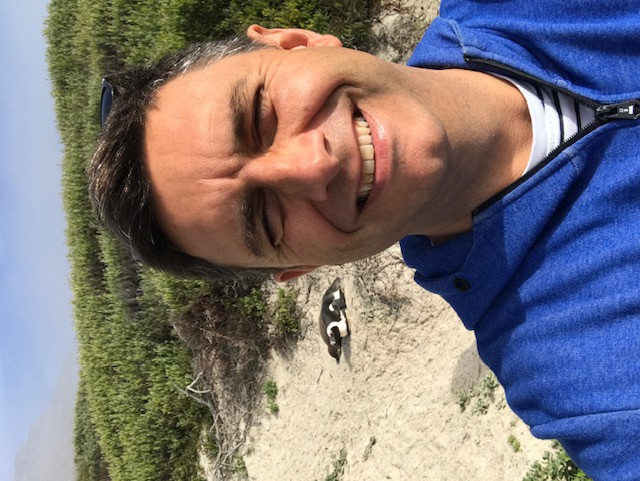Daniel Mays stars in Against The Law: ‘I struggle to get my head round how gay men were hounded in the 50s'

Daniel Mays stars as unsung gay rights champion Peter Wildeblood in inspiring new BBC2 drama Against The Law…
Line of Duty and Mrs Biggs actor Daniel Mays stars in a compelling new BBC2 one-off drama Against The Law, the true story of gay Daily Mail journalist Peter Wildeblood.
In 1954 Peter was convicted of inciting ‘unnatural offences’ and committing gross indecency after a love affair with another man. Back then homosexuality was a crime and he was sentenced to 18 months in Wormwood Scrubs where prison psychiatrist Dr Landers (Sherlock’s Mark Gatiss) tried to ‘cure’ him with electric shocks and chemicals that induced nausea and incontinence.
On his release, Peter became determined to change the law and ended up being an instrumental figure in the decriminalisation of homosexuality in the UK in 1967.
What’s On TV caught up with Daniel, who plays the late Peter Wildeblood, to find out more…
What challenges did you find in this role? "The fact that it’s a real story and there was an abundance of research to pore over. The drama also features real gay men from the era who talk about dealing with life back in the mid-1950s, so hopefully that will resonate with the audience – all of these people struggled with this and just wanted to live their lives. This story is born from the sensation, the emotion of love.
"I’ve played gay men in the past, but this is specifically about a gay story and what it means to be gay and how that sits within the world. I really wanted to try to understand that. Realistically, I can only say that’s how I feel about a woman, when I play the gay scenes. As simple as it is, the fact that you can have strong emotion of love like that and it was deemed a criminal act back then is completely alien to me and I struggle to get my head round it."
The latest updates, reviews and unmissable series to watch and more!
How did you find portraying a gay man? "I'll admit I was out of my comfort zone, but as an actor I want to be challenged. The script and the team behind the drama were so good it really helped me."
You're showing what it was like to be gay in the 1950s in this drama. How was it? "It was a time when homosexuality was seen as depraved and that gay people had something mentally wrong with them. In the papers there was even an advert, ‘how to spot a homosexual’ and Peter was surrounded by that. Being gay would have been the equivalent of being a paedophile – gay men were hounded and feared by society. I struggle to get my head round that."
How did Peter end up being arrested? "He tried to have heterosexual relationships with a number of girls, but he was kind of stumbling around in the dark. Then he meets an RAF corporal called Eddie McNally and you see them fall in love, but then the arrests happen. The Home Secretary’s policy at that time was to convict as many gay men as possible."

The subsequent trial left Peter’s life and career in tatters, didn’t it? "The saddest thing is that Eddie is the one who testifies against him and that’s really the nail in Peter’s coffin. They’d discovered the letters they’d sent to one another and it was deeply embarrassing and horrendous for Peter to be exposed in that way. He was someone desperate to keep his private life private – even his parents didn’t know about his sexuality, so for it to explode like that in the press was incredibly damaging."
In prison, Peter volunteers to have aversion therapy to try to ‘cure’ him of his homosexuality. Why does he agree to that? "During the trial he admitted: 'If there was any way of getting rid of my homosexuality I would only be too pleased, because it’s been nothing but a handicap that’s led to loneliness and unhappiness.' So many men at that time were so desperate. Some took their own lives. But if you’re locked up and aversion therapy is your only choice, I guess you take it. But it’s a horrendous circumstance."
How did he end up finding the strength to fight the law? "You see him stripped of everything – in a cell, dehumanised. But when he hears the description of the aversion therapy and all the horrendous barbaric detail about it it’s the beginning of him formulating a plan and trying to gain inner strength. That’s what drew me to his story and made me accept the role – at his lowest ebb he was able to find courage. It’s a hell of an emotional journey he goes on."

Peter ended up testifying for the Wolfenden Report that recommended the decriminalisation of homosexuality in the UK, which came about in 1967. It’s an incredible legacy… "Yes, Peter is an unsung hero of gay rights. His testimony was so important in decriminalising homosexuality. It’s a truly inspirational story."
Have you ever witnessed homophobia? "You see it every now and again. I went to stage school from quite a young age, so I've always been surrounded by showbiz people – actors, and dancers. I went to a school reunion before the Brexit vote – I went to school in Essex – you hear people talk and realise how far things have now come from that small-town mentality. Horizons have been broadened and people are much more tolerant and accepting of people, and I think that’s how we should all live!"
Against The Law premieres on BBC2 on Wednesday, July 26 at 9pm

I'm a huge fan of TV so I've found the perfect job, writing about telly shows and interviewing major television, film and sports stars for over 30 years. I'm currently the TV Content Director on What's On TV, TV Times, TV and Satellite Week magazines plus contribute to Whattowatch.com. I previously worked on Woman and Woman's Own in the 1990s. Outside of work I swim every morning, support Charlton Athletic football club and get nostalgic about TV shows Cagney & Lacey, I Claudius, Dallas, Tenko and I'm quite partial to a bit of Little House on The Prairie. I'm totally on top of everything good coming up too, and love newer shows such as The Day Of The Jackal, This is Us, Hacks and anything Dexter.

